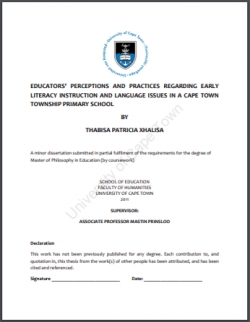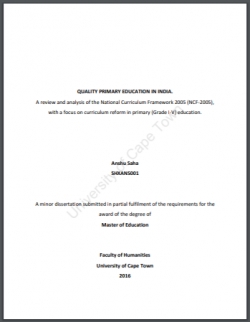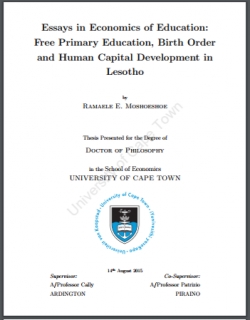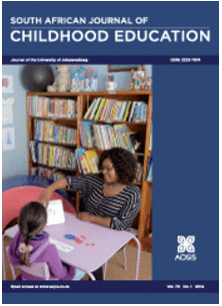Building bridges to primary education in Mauritius? emergent literacy experiences in a foreign language context : a case study of preschool children
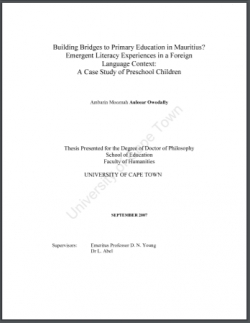
Type
Thesis
Category
ECCE, Preschool
[ Browse Items ]
Publication Year
2008
Publisher
University of Cape Town, School of Education, Cape Town, South Africa
URL
[ private ]
Pages
563 p.
Subject
Early childhood education, Preschool education, Preschoolers, Learners, Second language learners, Teachers, Multilingual contexts, English language, Literacy, Mauritius
Tags
Abstract
In the context where English, as a foreign language, is the main language of literacy and the written medium of instruction throughout the Mauritian education system, this thesis explores (1) preschoolers' early literacy experiences, (2) the outcomes of these experiences, and (3) the extent to which these experiences prepare them to use English in Standard 1. The theoretical and empirical research on emergent literacy, second/foreign language learning and teaching, second/foreign language literacy instruction and new literacies was reviewed in order to find some "anchor points" (Hamilton, 2006) in the literature. These "anchor points" guided this exploratory study on emergent/early literacy experiences in a multilingual context. After a pilot study, I embarked on a yearlong case study ofa group of preschool children and their teachers using an ethnographic approach. Throughout 2005, I observed teachers' pedagogical practices, and interviewed teachers and parents. I also designed a test to assess the children's progress in oral English and literacy over their final preschool year. Run in parallel to the main study, a quasiexperiment, involving the teaching of oral Engl ish to a comparable group of preschoolers, was carried out. While inductive analysis was used to analyse the observational and interview data, paired and independent t-tests were used to assess and compare the children's oral English and pre-reading and pre-writing development in the two settings. The findings indicate that, although there are many similarities between the preschool and the home in terms of children's early experiences with oral English and pre-reading and pre-writing, the preschool remains the main site where most children are introduced to oral English and pre-reading and pre-writing. At the preschool, teachers use mainly code-switching to teach the oral version of the Standard 1 Maths and Environmental Studies syllabus, leading to children's limited proficiency in oral English. Teachers also use the copying strategy to teach children pre-writing. This results in children's ability to recite the alphabet and write down their names. However, this copying does not seem to develop the children's familiarity with the alphabet. As far as exposure to reading is concerned, children are rarely exposed to reading in the preschool and the home. This might explain their lack of interest in print-related activities. These findings are explained in terms of the remnant effects of a colonial language policy, the vague curriculum guidelines, the inadequate teacher training and some particularities of the local culture. This thesis, thus, argues that the children-subjects are inadequately prepared to make the transition to Standard 1, where English has a prominent place. However, the quasi-experiment indicates that if children are exposed to English daily and in a structured manner, their oral English proficiency can improve significantly, providing a more solid foundation for the development of English literacy. In the light of the findings from the main study and experiment, this thesis makes recommendations to the Ministry of Education.
Description
Thesis (PhD)--University of Cape Town, 2008
Number of Copies
1
| Library | Accession No | Call No | Copy No | Edition | Location | Availability |
|---|---|---|---|---|---|---|
| Main | 862 | 1 | Yes |

